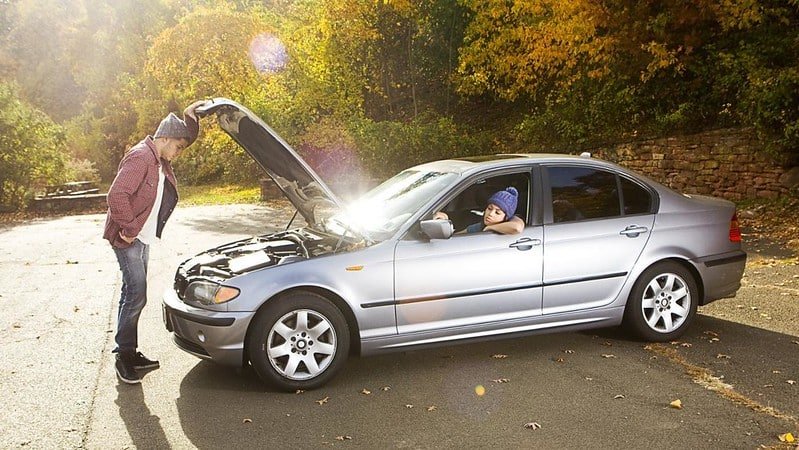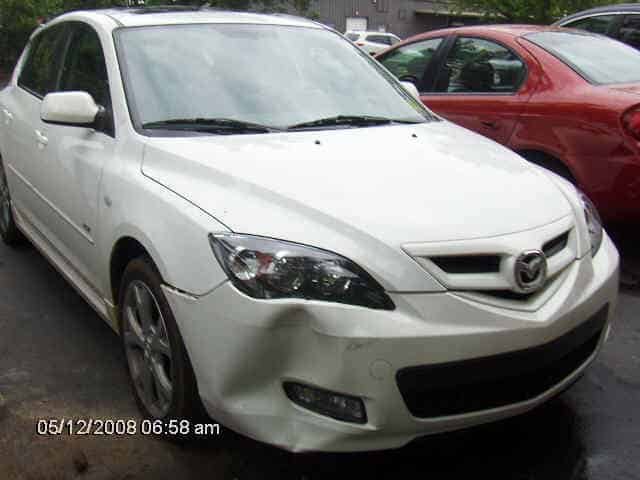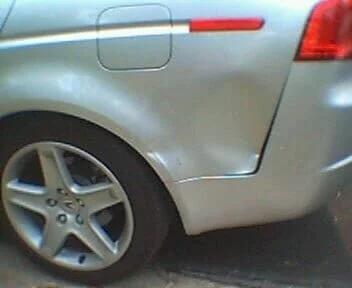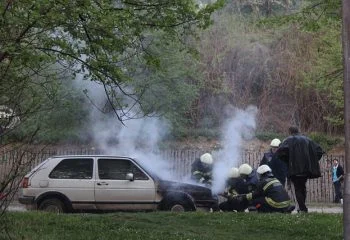Have you ever felt your car jerk when you give it some gas? If so, then you are not alone — this is a common problem that many drivers experience. Knowing why and how to solve this issue can help keep your car running at peak performance and prevent any potential harm from occurring.
In this blog post, we will go through the most likely causes of jerking when accelerating with your vehicle as well as helpful tips on how to address these issues in an effective manner. So if you’ve been asking yourself “why is my car jerking when I give it gas,” read on for the answers!
What's in this post?
11 Reasons Why Is My Car Jerking When I Give It Gas
1. Fuel Injectors
Fuel injectors are responsible for spraying the right amount of fuel into the engine, which is why it is so important to keep them clean.
When they become dirty, they don’t spray the ideal amount or have consistent pressure and performance, causing your accelerator to become jerky and your engine to misfire whenever you attempt to accelerate while at a stop.
This can be both uncomfortable and dangerous, so it’s important to bring your car in for service regularly to avoid this issue altogether.

2. Worn Out Spark Plugs
Worn out spark plugs are quite common and can be easily determined by some telltale signs. Your car may feel rough and make odd noises when you press on the accelerator, or have fewer miles between fill-ups due to having to run at a lower efficiency than normal.
You may also notice an unbalanced performance – your engine may feel like it’s hesitating as if it’s being briefly stalled for a split second each time it fires. It’s important to diagnose this issue quickly because if the spark plugs are worn out, the problem won’t go away on its own.
3. Catalytic Converter Blocked
Many car owners are unaware of the vital role that the catalytic converter plays in their car. Its purpose is to reduce pollutants released through a car’s exhaust, and it does this by converting those harmful gasses into less toxic ones.
However, when an air/fuel mixture is too rich, a clogging of the catalytic converter can occur over time and disrupt the airflow within the exhaust system. The outcome for drivers may result in stuttering and jerking as well as an overall decrease in responsiveness when pressing down on the gas pedal.
Further symptoms include unpleasant odors like hydrogen sulphide along with a decrease in fuel efficiency, plus the check engine light might be illuminated.
Fortunately, minor blockages can potentially be unclogged with special cleaners made for catalytic converters; if that doesn’t work they should visit an auto repair shop where they will likely need to replace their catalytic converter altogether.
4. Transmission Control Module
The transmission control module (or solenoid) is a part of an automatic transmission system that controls gear changes when you accelerate. If your car drives erratically and experiences jerky movements when changing gears, then it may be because the solenoid has failed and needs to be replaced.
Although not necessarily a common issue, it should be among the troubleshooting steps taken into consideration.
Unfortunately, the cost for replacement of this module can vary from car to car, but it may not be cheap as parts for automatic transmissions tend to be pricier than those designed for manual vehicles. Repairing the existing module rather than replacing it is sometimes the most cost effective route to take.

5. Damaged Cylinders
Damaged cylinders can be a major issue for your vehicle. Misfiring caused by damaged cylinders can not only impede you from driving properly but also potentially cause further damage to the engine.
Small losses in power and rough idling indicate such a problem, and therefore require quick attention from a professional mechanic. If ignored, the engine could suffer great harm if the correct repairs are not made in time.
Don’t take the risk of further destruction; contact your local mechanic right away to get those cylinders fixed!
6. Fuel Pump Or Filter Failure
The fuel pump is at the heart of any car’s fueling system and can be the root cause of sudden jerks while accelerating. If the fuel pump is not delivering the expected amount of fuel, this can result in jerking or surging forward while driving.
This could mean that your fuel pump needs to be replaced, which would be a considerable repair job. You should also take the time to check if it’s your fuel filter that is causing issues, as it might simply need replacing with a new one and this process should not require too much work.
Identifying and tackling bad fuel pumps or filters might potentially save you expensive overhauls and repairs in the long run.
7. A Bad Mass Air Flow Sensor
A bad mass air flow sensor can cause a car to behave erratically at high speeds. When it occurs, car owners may feel an unexpected jerk or surge forward while driving on the highway or other high speed roads.
This happens when the MAF sensor fails to measure the amount of air entering the engine correctly which in turn prevents the computer from sending appropriate instructions to its fuel injectors.
However, detecting this issue is simple as it usually triggers a check engine light. An OBD2 scanner can also confirm this problem quickly and easily. As such, taking care of any faulty MAF sensors right away can help keep drivers safe and ultimately prolong the life of their vehicles.

8. Dirty Air Filter
It’s quite possible that the cause of car sputtering and jerks when accelerating is due to an improper air/fuel mixture. The first place to check is your air filter – if it’s clogged with dirt or other foreign particles, then this could affect performance and result in those uncomfortable jerks.
Replacing the air filter isn’t expensive nor difficult, and can make a difference in longevity as well as reduce or altogether eliminate acceleration jerks. Getting a reusable air filter, such as a K&N model, gives you the option of having it cleaned instead of replaced after each use.
Taking the time to ensure your car has good grounds for airflow will be worth the effort in making your driving experience smoother and more enjoyable.
9. Moisture On The Distributor Cap
Colder days often result in condensation settling under the distributor cap, hampering a car’s ability to start and causing it to jerk when accelerating at low speeds.
While the moisture will eventually evaporate, repeated problems caused by moisture buildup can strain your engine over time. To avoid possible damage, the best option is to move your car inside, such as into a garage or covered shelter.
Such preventive measures are relatively inexpensive and simple yet can save you from significant car troubles in the long run.
If these options aren’t available, consider using a thermal cover; many are designed specifically for this issue, shielding your vehicle from inclement weather overnight and keeping it running strong for years to come.
10. Worn Accelerator Cable
Having a worn accelerator cable can cause your car to become sluggish and unresponsive when you press down on the gas pedal. This occurs because the cable acts as a mechanical link between the throttle plate and the gas pedal.
When it’s in poor condition, the cable won’t be able to transfer energy correctly, resulting in lurching acceleration instead of a smooth response.
To diagnose this problem, check for damage such as fraying or worn outer coating along its length – if present, it is time to replace the cable. Do not delay with this repair, as a broken cable will render your car unable to move at all. To ensure proper installation, take your vehicle to a qualified mechanic for expert attention.
11. Bad Defective Carburetor
A poor running engine can be traced to a number of issues, but often the root cause is a defective carburetor. This small but essential component regulates the mix of air and fuel before it reaches the engine.
If there’s an issue with fluid levels or pressure in the carburetor, it will cause the car to jerk and shudder when the accelerator is pressed. Additionally, the mixture of fuel and air may not be ideal which will result in decreased performance on the road.





